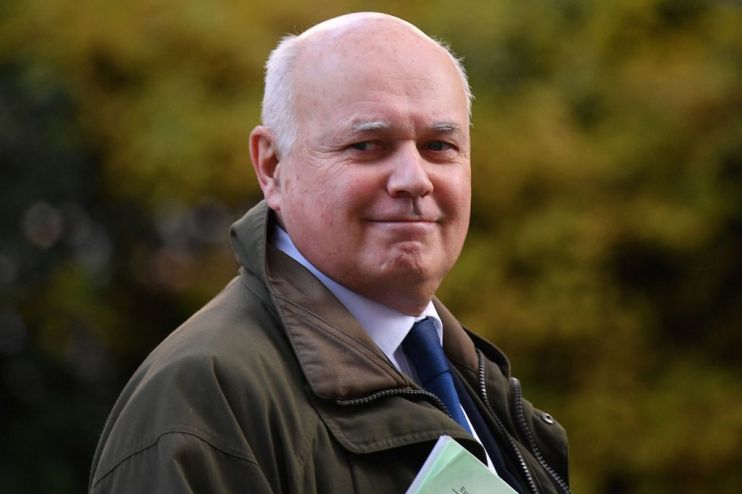Huawei is uniting Tory backbenchers – but can they win over Saj?

What Brexit put asunder, Huawei appears to be joining.
Yesterday morning, former Tory leader Iain Duncan Smith led a debate about the Chinese firm’s involvement in the UK’s 5G infrastructure. He was joined by plenty of Conservative MPs you might expect – fellow Leavers David Davis, Bob Seely and Owen Paterson – and plenty of others you might not. It’s probably been a long time since Tom Tugendhat or Damian Green found themselves nodding along to the ERG’s new chair Mark Francois, yet in Westminster Hall the two sides were aligned.
“As the UK leaves the EU, we should avoid kow-towing to China or anyone else in this regard,” IDS told his colleagues. “If defence of the realm is the priority, what the government is proposing is semi-defence of the realm and that simply will not do.”
Alongside the Tories were several opposition MPs, including Labour’s Alex Sobel who criticised Huawei’s “wolf work culture”, warning: “The government can choose to release the wolf into our country, but can’t be surprised when it is then bitten.”
Ruth Edwards, Ken Clarke’s successor as the MP for Rushcliffe, who used to work at BT, was a rare voice in support of the government, telling colleagues that “there are no trusted vendors” and the question is about how you manage risk. She made a compelling case for how the restrictions that are being imposed, including the 35 per cent market cap, will tame Huawei and keep that risk controlled.
But she, along with culture minister Matt Warman, did little if anything to assuage concerns around the UK’s security and its standing within the Five Eyes intelligence-sharing alliance.
Yesterday was just the latest in what appears to be a growing movement forming against the government, with one source describing “a concerted effort going on behind the scenes to sway the new blood” and strip Huawei from the UK’s telecoms infrastructure.
Last week a “dear colleagues” email was sent around by Davis to every Tory MP except frontbenchers and those in the junior ministerial ranks. He warned them of the “critical” issue and urged them to “get involved”.
Then there have been “quiet meetings” with providers and foreign counterparts to try and better understand the situation.
Number-crunchers reckon they need just over 40 Tories to make a rebellion work.
There were perhaps half that in Westminster Hall, but plenty of others are said to be sympathetic.
Now efforts are being put in to secure the support of some of the recent Cabinet departures, as any indication from ex-ministers that all is not well with the deal could provide a huge boost – a reminder, if Johnson needed it, that forced demotions always come with a health warning.
Former business secretary Andrea Leadsom is not expected to change her tune – her old Cabinet colleagues recall her being broadly positive about the move. But those sitting around the table with Sajid Javid when he was home secretary describe him as having doubts, with one saying he was “very sceptical” at the time, although he publicly backed it during his last days in office.
The suggestion – or perhaps it is more of a hope – is now he is no longer bound by collective responsibility the ex-chancellor will return to his original view, and potentially sway those still on the fence, ready for the next big battle.